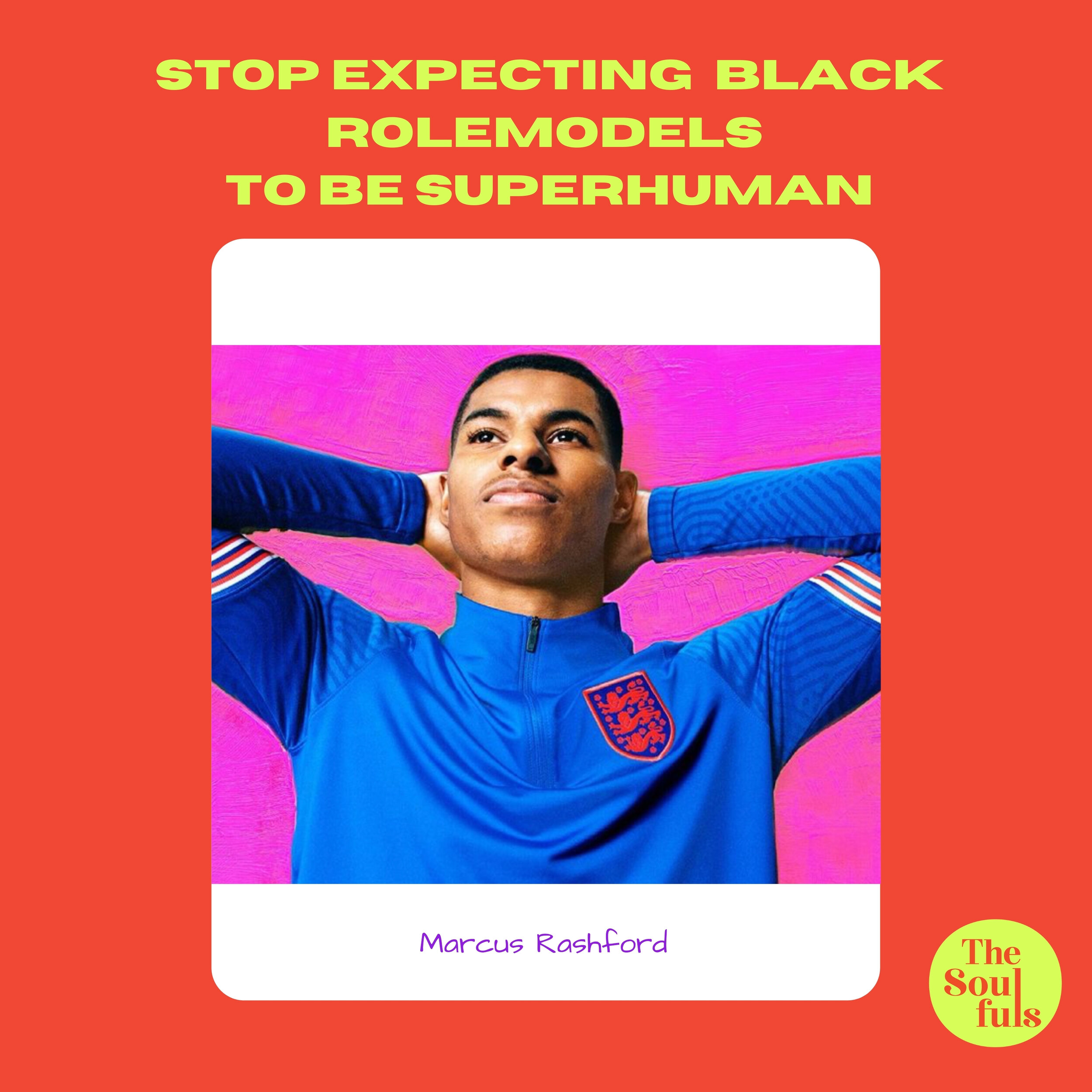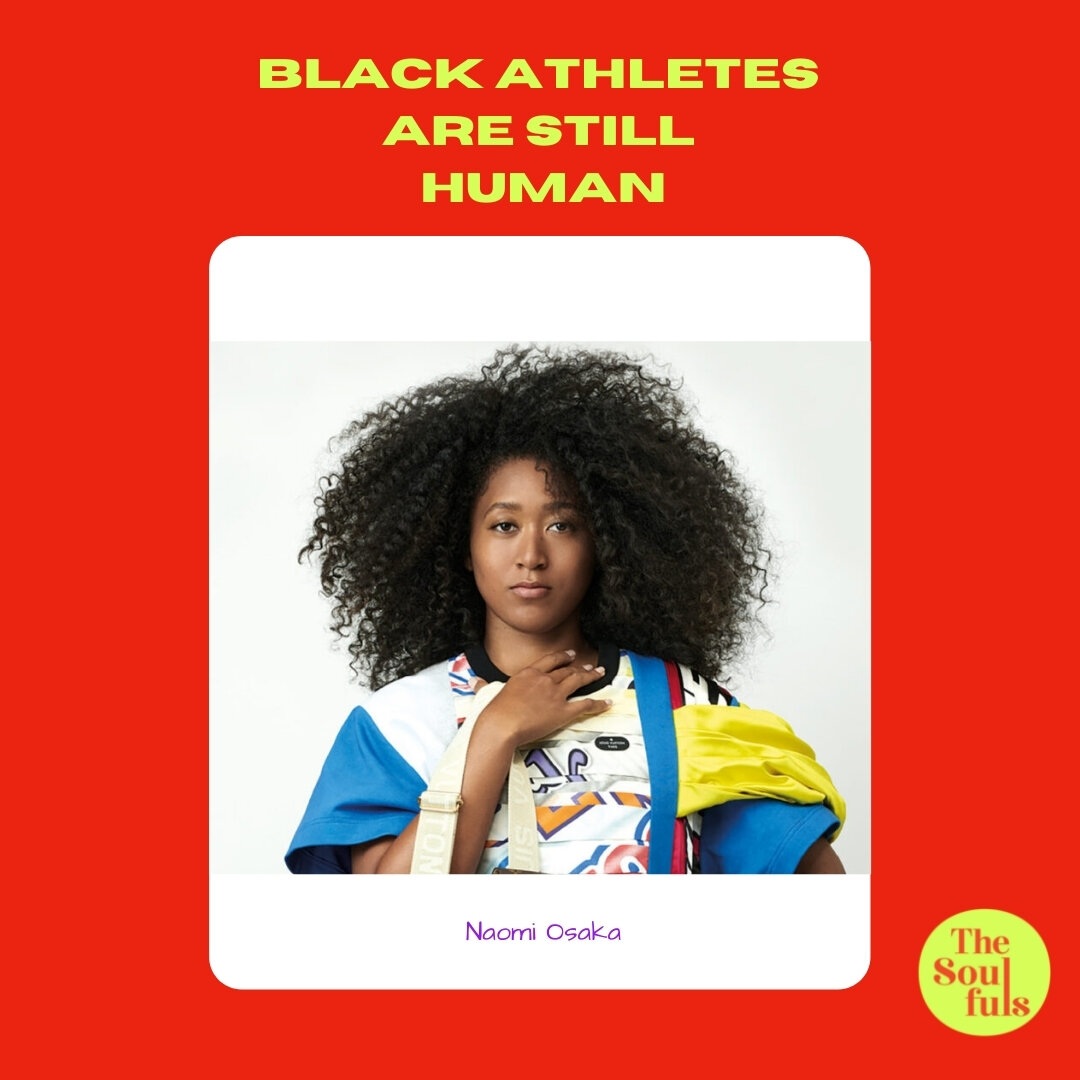BLACK ATHLETES ARE STILL HUMAN
Black role models in the sporting world are expected to be superhuman - when they lose, it’s less about their skills and more about their skin colour.
“It’s coming home.” For every English person, the tongue-in-cheek Three Lions football song is up there alongside Come on Eileen and Waterloo as the country’s unofficial national anthem. Over the last five weeks, we’ve exhausted all other European nations by screeching it at every opportunity –– whether that be at Wembley Stadium or while dangling precariously off the front of a double-decker bus.
On Sunday, 11th July, this generation of England players made history. For the first time in 55 years, we’d reached the final of a major tournament. I’d been living in Copenhagen, Denmark, and had made it back to my native London to watch it, after one-and-a-half years abroad due to the pandemic.
The day of the final, the city was awash with pride. My friends and I chuckled at lads dressed as Beefeaters and roared alongside drivers who honked their horns, with England flags trailing from car windows. This was patriotism at its peak –– not the xenophobic, elitist kind that has been peddled by the Tory government over the last decade or so, but the inclusive sort that makes me endlessly proud to hail from the most diverse city in the world.
Several Heinekens down and with extra time coming to a close, the penalties I had predicted but prayed against kicked off. Finally, 19-year-old Bukayo Saka stepped up to take his make-or-break shot and missed. We watched as manager Gareth Southgate cradled the devastated teenager in his arms. At the same time, Saka’s social media pages were spammed with monkey emojis and mentions of the N-word.
Alongside Saka, Marcus Rashford and Jadon Sancho had also missed their penalties. Three black men who had greatly contributed to England’s performance were now subject to unashamed vitriol from so-called fans. These were people so irate that it wasn’t coming home, that they decided to make a point to these players that they’d never consider England to be home to them.
Well-intentioned messages of support from across the globe came flooding in, as an attempt to dilute the poisonous rhetoric that has long festered at the heart of football. Reminders of the trio’s contributions outside of sport were meant to act as buffers. “Marcus Rashford may have missed a penalty, but thousands of children were fed during the pandemic because of him and I think that’s a far greater thing to be remembered for,” wrote one Twitter user.
Rashford has indeed provided children across the UK with free meals that Boris Johnson’s government were happy to scrap. He’s also launched a book club to promote childhood literacy. To many, myself included, he’s a national hero. But this “good immigrant” trope is one that resurfaces again and again where racism is concerned. An equally pernicious form of “othering,” this idea persists that a person of colour can earn their place within white society if they adhere to an arbitrary set of rules that make them “worthy.” Asian American communities are often used as an example to illustrate this branch of systemic racism that masquerades as a moral meritocracy –– a structure that’s divisive and devastating.
It’s a plague that befalls black athletes the world over. Mattel launched a Barbie doll this week modelled after tennis champion Naomi Osaka. A role model for young girls of all ethnicities, the 23-year-old was vilified by the media last month for boycotting press conferences at the French Open in an attempt to safeguard her mental health. Similarly, US track star Sha’Carri Richardson was recently suspended from competing for a month after testing positive for THC, a chemical compound found in marijuana. As a result, the Women’s 100 metres gold-medal favourite won’t be allowed to represent her country at the Olympics. “I am human,” she tweeted in response to those condemning her behaviour. Richardson later explained that she had taken to smoking weed to cope with the recent passing of her biological mother. For both women, it’s evident that there’s this unwavering societal expectation to be infallible –– fail, and your greatness will be stripped away with swiftness.
Every single black player on the England squad, not just the ones who missed their penalties, should be treated with respect and decency. They may be elite sportsmen but they’re also fellow human beings. Achieving second place in the Euros is a massive achievement –– not an excuse to view them as second-class citizens. In a moving statement posted to his Instagram account, Rashford wrote: “I’m Marcus Rashford, 23 year old, black man from Withington and Wythenshawe, South Manchester. If I have nothing else I have that [SIC].”
It’s the genuineness behind his closing sentiment that’s so relatable. No matter what we manage to achieve in this life, we all have our own unique origin story and set of experiences that make us who we are. Whatever opinion an ignorant person weaponises against us, it’ll never be enough to truly shake the foundations of our being.
True England fans know that every man on that squad has come to represent what we deem as Englishness. It’s an attitude centred around equality, where everyone can prosper, regardless of race, age, religion or sexual orientation.
We may still have a long way to go in order to realise the England that exists in our hearts, but to paraphrase Baddiel, Skinner and The Lightning Seeds’ epic banger, “Centuries of hurt, never stopped me dreaming.”
- written by Lakeisha Goedluck
Upcoming Member’s Events


